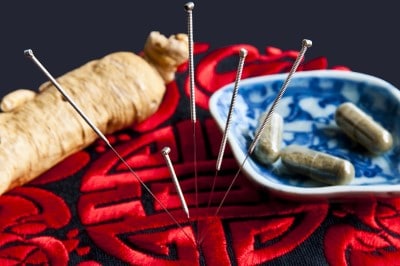
Can acupuncture help sleep apnea? – What we know and how to try it out
By Jason Wooden, PhD | October 19, 2021
It’s no surprise people are curious whether acupuncture can help sleep apnea given it’s historical use for a variety of ailments. Evidence is growing it can reduce breathing interruptions in obstructive sleep apnea patients.
Before working with an acupuncturist, it’s important to check their training and credentials, ask about what you can expect and potential risks, and in with your doctor to see if they’re any health concerns.
Why there’s growing interest in acupuncture for sleep apnea
I get why you’re curious whether acupuncture can help sleep apnea.
After all, living with sleep apnea is a real bummer.
Miserable nights, miserable days…so anything that can bring relief is worth a try.
Maybe you’ve tried CPAP, the most common treatment, and found the mask setup just too uncomfortable.
(You wouldn’t be the first given as many as 50% of patients stop using their CPAP machines or never both to fill their prescription.)
It could be you’re just looking for natural remedies for your sleep apnea.
Whatever your reasons, it’s important not to give up getting your sleep apnea under control.
That’s because untreated sleep apnea is no joke.
It’s a life-changing ailment that affects nearly a billion worldwide.
Besides making you a sleep deprived zombie, it can strain relationships and affect your performance at work.
It can also increase your risk for other life threatening issues such including high blood pressure, heart disease, stroke, diabetes, and depression.
That’s a lot at stake.
So, why try acupuncture for sleep apnea?
It’s been used in China for thousands of years to treat pain, headaches, stress, and many other health issues.
It’s also drug free and there’s no equipment to wear at night.
Can acupuncture really help sleep apnea?
Let’s take a look at what we know and how you can try it out.
If things have gotten pretty serious and you’re dealing with other major health issues, you could be playing with fire. The stakes may be way higher than you realize since untreated sleep apnea can lead to complications that kill you.
If this is the case, you need the big guns sooner rather than later.
Regardless, let’s take a look what you can try to treat sleep apnea yourself and the reasons why it’s still a good idea to see a doctor.
How acupuncture works
Acupuncture is derived from Chinese traditional medicine and has been developed over a period of more than 2000 years.
As mentioned earlier, it has been used to treat a variety of ailments.
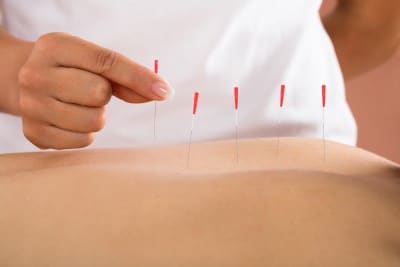
Acupuncture works by stimulating specific points on the body. Thin needles are inserted through the skin at specific points to cause a change in the physical functions of the body.
The points are activated using gentle and specific movements of the practitioner’s hands or with electrical stimulation.
It’s not so crazy that acupuncture may help sleep apnea given what researchers are seeing in clinical studies for other health issues.
So far, research is confirming it’s benefits for pain, headaches, managing cancer treatment side effects, Asthma, and menstrual cramps.
Some important things to keep in mind before giving acupuncture a try are:
- It’s not for everyone so it’s important to check in with your doctor and acupuncturist before starting treatment
- It should be done by a well-trained professional, as there are serious side effects if done incorrectly.
- Like any other treatment, everyone doesn’t respond to acupuncture the same
Now, let’s look at the latest research news for acupuncture and sleep apnea.
Can acupuncture REALLY help sleep apnea?
It turns out that using acupuncture for sleep apnea has been studied quite a bit.
Most of the research has been done for obstructive sleep apnea, the most common type which happens because the muscles in the throat relax too much during sleep. As a result, the airway gets too narrow which is what interrupts breathing and causes loud snoring.
Very little research has been done for central sleep apnea which is caused by a communication problem between the brain and the muscles that control breathing.
First, there’s a 2016 meta-analysis study where researchers looked at the combined data from six clinical studies involving 362 obstructive sleep apnea patients.
(A meta-analysis is just a study where data from a bunch of different of studies is pooled together for more powerful insights.)
One of the main things researchers looked at was how acupuncture affected the number of times patients have sleep apnea breathing interruptions within an hour, also known as the apnea-hypopnea index (AHI).
They found that patients treated with acupuncture had fewer breathing interruptions and concluded that it was effective for the treatment of sleep apnea.
More recently, a bigger meta-analysis was done that included the data from nine clinical studies involving 584 patients. Again, they found that acupuncture significantly reduced breathing interruptions and concluded it could help patients with obstructive sleep apnea.
While more studies needs to be done, especially for patients with central sleep apnea, the research so far is encouraging and confirming the use of acupuncture for sleep apnea.
Can acupuncture help snoring too?
Snoring happens when air flowing through your mouth and nose is obstructed. As you breathe, the tissues in your throat vibrate resulting in that loud and annoying noise.
It can happen for various reasons including issues with your nose such as congestion or issues with the throat as seen for sleep apnea.
So, can acupuncture help with snoring?
For people who snore because of nasal congestion, the research is looking promising.
In a small study with 24 patients, acupuncture was found to help relieve nasal congestion. Even better, a meta-analysis involving 2365 patients concluded that acupuncture could be a safe treatment for people with seasonal allergies.
Likewise, the same can be said for people who snore because of an obstructed airway.
I’ve already mentioned how research is showing how acupuncture can help obstructive sleep apnea. It turns out snoring is one of the most common symptoms.
Often, when patients get their sleep apnea under control, the snoring goes away.
So, if you’re snoring because of nasal congestion or sleep apnea, there’s growing evidence acupuncture can help.
How to try out acupuncture for your sleep apnea
Acupuncture should be done by well-trained professional, as there are serious side effects if done incorrectly.
Among the risks to be aware of are:
- Bruising, soreness, and minor bleeding where needles are inserted
- Some acupuncture techniques involve applying mild electrical pulses to the needles which may interfere with a pacemaker’s operation
- For pregnant women, acupuncture could start labor and cause premature delivery in some cases
- Potentially dangerous complications for people with a bleeding disorder or taking blood thinners
Also, acupuncture is not for everyone. You may have a health complication that your doctor or acupuncturist advises against its use. Some people find the needles uncomfortable even though they’re very thin.
From personal experience, I’ve been told that everyone’s body doesn’t respond to acupuncture the same
So, do your homework including checking in with your doctor to see if there are any concerns.
Finding an acupuncturist
Like any other health specialist, you can ask people you trust or your doctor for a recommendation.
You can also check on a directory:
National Certification Commission for Acupuncture and Oriental Medicine Practitioner Directory
American Academy of Medical Acupuncture Patient Referral Directory
Be sure to check the practitioner’s training and credentials.
What to ask about
It’s important to interview the acupuncturist to see how they think they could help you and to get a feel for how they work.
Some things to ask about are:
- How likely they think it will help you
- What’s involved with treatment
- What you can expect
- Side effects and risks
- Payment
It’s important that they know what else you’ve got going on with your body (if they haven’t asked already).
Payment and Insurance coverage
In the US, the average cost for acupuncture ranges anywhere between $45 and $150 per session.
Some health plans cover acupuncture when it is medically necessary and prescribed by your doctor.
Working with an acupuncturist
To get the most out of your treatment sessions, it’s recommended that you:
- Wear loose clothing
- Eat something before you come
- Avoid greasy and heavy food
- Avoid stimulants
- Arrive on time
- Try to stay relaxed
- Silence your phone
- Follow the post-treatment recommendations of your acupuncturist
- Give feedback on your treatment and how your body feels
Other ways acupuncture could help your sleep and sleep apnea
It should be no surprise acupuncture may help your sleep apnea in more than one way. After all, it’s been used for a long time for all sorts of things.
You can ask your acupuncturist about some these other health benefits.
1) Better sleep
Did you acupuncture may help you sleep better? There’s growing evidence that it’s useful as an insomnia treatment in some patients.
2) Stress and anxiety
Stress, anxiety, and depression are among the most common causes for insomnia. It can also make things worse for sleep apnea patients.
There’s growing evidence that acupuncture can help anxiety and depression.
Learn more:
Acupuncture for Anxiety (Healthline)
Acupuncture for Depression (WebMD)
3) Inflammation
Experts now view obstructive sleep apnea, as a low grade chronic inflammatory disease. In studies, sleep apnea severity has been found to track with high levels of inflammation – the worse the sleep apnea is the more inflammation found in the body.
Researchers have found that acupuncture can activate different nerve pathways that suppress inflammation.
4) Less pain
Chronic pain is a major sleep issue for millions people. It’s hard to sleep when you’re tossing and turning.
Pain is another one of the many ailments acupuncture has been found to help.
9 more natural remedies for sleep apnea
Acupuncture isn’t the only natural remedy that can help your sleep apnea. On the list below you’ll find a variety of remedies that can help people with obstructive sleep apnea.
Some are pretty simple and quick to get going on, others will take time to bear fruit. Many of them can help with sleep apnea directly AND support healthy sleep.
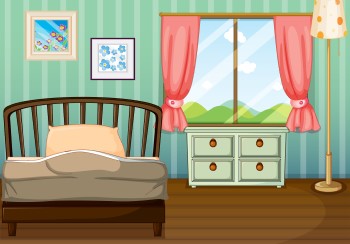
1) Sleep hygiene
So, why is this on the list first? It’s the basic foundation for quality sleep.
Your everyday habits can make or break sleep
For better sleep hygiene, you should:
- Wake up and go to bed at the same time every day
- Exercise
- Avoid large meals, alcohol, and stimulants such as caffeine before bedtime
- Maintain a bedtime routine
- Avoid electronics (TVs, tablets, smartphones) near bedtime
- Keep your bedroom dark, cool, quiet, & relaxing
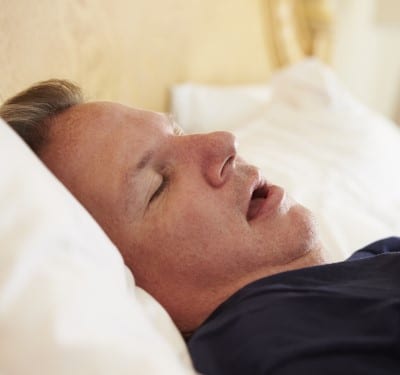
2) Change your sleep position
Did you know that over half of obstructive sleep apnea sufferers have symptoms that are “position-dependent”? Their symptoms are worse if they sleep on their back.
Depending on the severity of your sleep apnea, sleeping on your side instead of your back may help keep your throat more open and improve symptoms. Some people even claim that sleeping upright in a recliner helps.
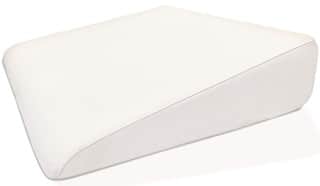
3) Use a wedge pillow to sleep upright
Recent research has shown that partially elevating your head at a comfortable angle (7.5 degrees) can help improve sleep apnea symptoms.
They found that this was able to reduce the severity of sleep apnea by 30 percent and worked best for people with mild to moderate OSA.
You can try doubling up a couple pillows, but you may find a foam wedge pillow more comfortable and effective since they’re designed to elevate the head with good body alignment.
Learn more:
Sleeping upright with sleep apnea
Memory foam wedge pillow (elevates at the right angle)
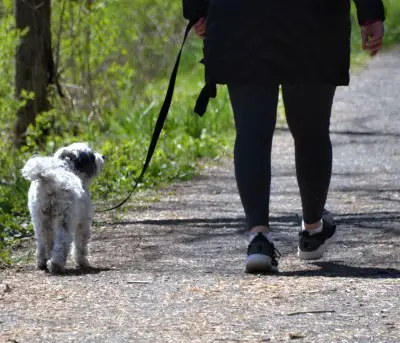
5) Physical activity
Besides helping with weight loss, physical activity is known to promote deeper sleep and there’s evidence it can help reduce sleep apnea breathing disruptions.
So, figure out something that will work for your situation whether it’s swimming, bicycling, jogging, or getting out for a walk. If you’re dealing with other health issues, be sure to check with a doctor so you don’t overexert yourself.

4) Weight loss
About half of people with sleep apnea are overweight, even a small amount of weight loss can help improve symptoms.

6) Dietary changes
Eating healthier can help with weight loss and keep you from eating foods in the evening that may come back to wreck your sleep.
A low carb anti-inflammatory diet may also help since sleep apnea has been connected to inflammation. (Patients with obstructive sleep apnea, the most common sleep apnea type, have upper airway and systemic inflammation.)

7) Turmeric
Turmeric is another inflammation fighter that may help with obstructive sleep apnea. It’s a natural remedy well known for its anti-inflammatory properties.
While turmeric hasn’t been directly tested for sleep apnea, promising results have been seen for other inflammation-linked health conditions.
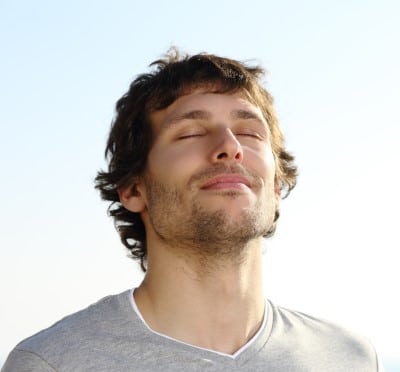
8) Mouth and throat exercises
Various exercises using your mouth and throat may help strengthen your airway and surrounding muscles. This can help the airway stay more open and improve sleep apnea symptoms.
Learn more:
Mouth And Throat Exercises to Help Stop Snoring and Improve OSA (sleepfoundation.org)
Video: Throat exercises for snoring and sleep apnea
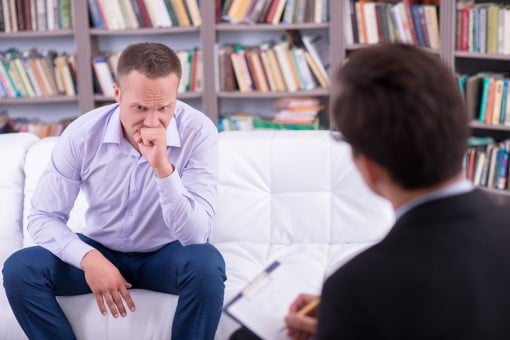
9) Sleep counseling
Your mind, brain, behaviors, and body can interact in powerful ways that affect health and wellness. In fact, research has shown that sleep apnea patients are more at risk for anxiety.
And did you know ongoing stress can lead to excessive inflammation in the body?
Why it’s still worth seeing a doctor
Even if you decide to do acupuncture for your sleep apnea, it’s still worth getting a checkup.
There are so many different things that can affect sleep. A doctor can help you identify and work through any underlying issues that may be making it harder to sleep.
If you don’t deal with these underlying issues, you may be just sticking a band aid on things.
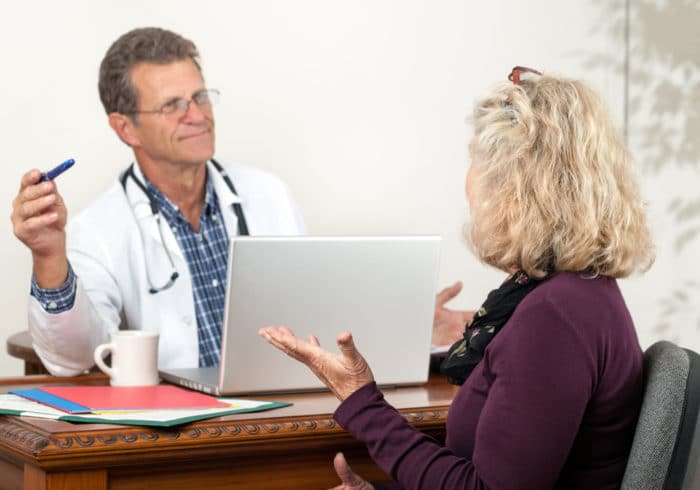
Underlying health issues
Too many people are unaware how many medical issues can cause problems or worsen sleep. The list includes things like asthma, allergies, acid reflux and heartburn, heart issues, chronic pain, and diabetes.
Medications
Some medications interfere with sleep and some may directly worsen your sleep apnea symptoms. Many opioids taken for pain can make it harder to fall asleep, stay asleep, and get deep restful sleep.
Mental health challenges
I’ve already mentioned how bad stress and anxiety can be for sleep.
Did you know there’s a strong link between poor sleep and depression? Many people who struggle with depression
And people with insomnia are more likely to develop major depression associated with sleep problems.
If you’re not careful, you can get in a vicious cycle where feeling down leads to more poor sleep and poor sleep leads to more depression.
You may also be interested in:
Can acupressure and acupuncture really help jet lag?
Can CBD help sleep apnea? – 4 ways it might
Can sleep counseling help with sleep apnea?
9 Things you can try to treat sleep apnea yourself
12 Alternatives worth a try if CPAP doesn’t work for you
Can losing weight help sleep apnea?
Sources:
1. Interventions for the Treatment of Obstructive Sleep Apnea in Adults: A Health Technology Assessment [Internet]. Canadian Agency for Drugs and Technologies in Health; 2017 Mar.
2. “Acupuncture: In Depth”, NIH website
3. “Acupuncture”, Johns Hopkins Medicine website
4. “AHI”, what does it mean?”, American Sleep Apnea Association website
5. The Clinical Effect of Acupuncture in the Treatment of Obstructive Sleep Apnea: A Systematic Review and Meta-Analysis of Randomized Controlled Trials. Evid Based Complement Alternat Med. 2016
6. Acupuncture for Obstructive Sleep Apnea (OSA) in Adults: A Systematic Review and Meta-Analysis. Biomed Res Int. 2020; 2020: 6972327.
7. Acupuncture for nasal congestion: a prospective, randomized, double-blind, placebo-controlled clinical pilot study. Am J Rhinol Allergy. Nov-Dec 2009;23(6):e23-8.
8. Acupuncture for the treatment of allergic rhinitis: a systematic review and meta-analysis. Am J Rhinol Allergy. Jan-Feb 2015;29(1):57-62.
9. Acupuncture price in forty-one metropolitan regions in the United States: An out-of-pocket cost analysis based on OkCopay.com. J Integr Med. 2019 Sep;17(5):315-320.
10. Acupuncture for treatment of insomnia: An overview of systematic reviews. Complementary Therapies in Medicine Volume 42, February 2019, Pages 407-416
11. Upper airway and systemic inflammation in obstructive sleep apnoea, Eur Respir J. 2016 Oct;48(4):1108-1117.
https://erj.ersjournals.com/content/48/4/1108
12. How Acupuncture Relieves Inflammation, 2021, Harvard Magazine
13. Acupuncture for Chronic Pain: Update of an Individual Patient Data Meta-Analysis. Critical Reviews| volume 19, issue 5, p455-474, may 01, 2018
14. https://psychcentral.com/blog/why-psychologists-are-starting-to-care-about-sleep-apnea/
15. “How stress influences disease: Study reveals inflammation as the culprit”, 2012, ScienceDaily.com
16. “Depression and Sleep”, Sleepfoundation.org
Connect with us:
About Us
Better Sleep Simplified® was founded as a place for you to get clear and well-researched information.
Our goal is to make sure you know about your options so that you take action sooner rather than later.
Check us out on YouTube:
Watch and Learn
Helpful sleep tips, interesting sleep facts and statistics you want to know about
Affiliate Disclosure
This site is a participant in the Amazon Services LLC Associates Program and other affiliate advertising programs designed to provide a means for sites to earn advertising fees by advertising and linking to them.
Important: BetterSleepSimplified.com is for informational purposes only and is not intended or implied to be a substitute for professional medical advice, diagnosis, or treatment. Always consult a physician for sleep and health concerns. See additional information.
